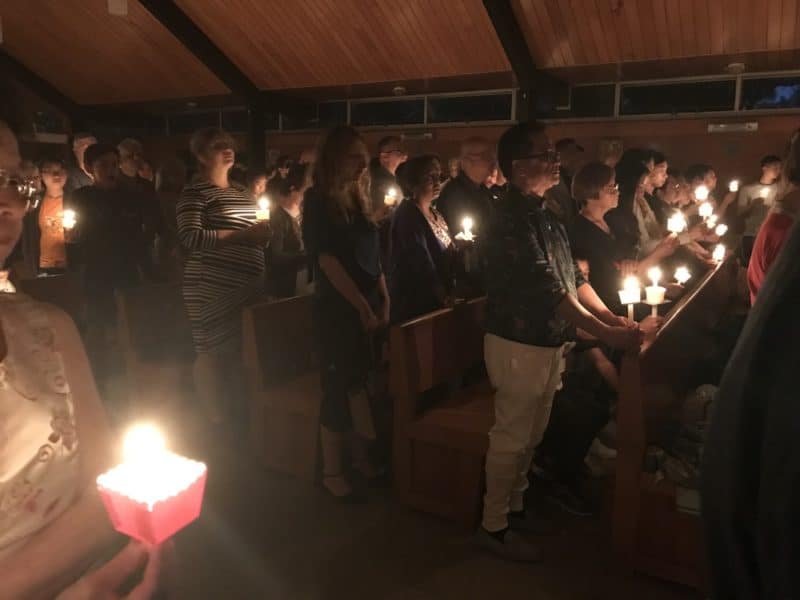by Sue Jones
If the laity have pause to ponder anything since taking up our call to mission and holiness it is this; we have worked so hard to build fecund lay parish communities, yet they have eluded us. Why? It seems that in Catholic life, perhaps all life, if we identify our goals too clearly, make them too worldly and aim too directly at achieving them, they tend to elude us. I thought of all this when I read Bishop Cullinane’s article, “A matter of style” (NZ Catholic, May 5).
In it, he mentions development of something called personhood. He writes of “what it means to be a person and what it means to fully respect the primacy of conscience”.
This further development in our call to mission and holiness has come into our lives through the laws around marriage and the difficulty of pastoral care for those who find themselves in difficult marital situations. The idea of personhood for a Catholic seems, at the moment, to be associated with human rights and debate about what the term means for the Church’s future.
After Vatican II, talk of “wholeness”, rather than holiness, probably had its roots in the concept of personhood. It seemed at that time, when there was also much talk about being “made in God’s image”, that a Catholic lay person is somehow a more complete or whole person by entering into a relationship with God in which completeness, not perfection, is the goal. Should the laity approach personhood as part of lay life, becoming more faithful to Jesus Christ in the Catholic tradition?
I have no particular “issue” with Church law, nor the primacy of conscience with regard to it, neither do I have an “issue” about Pope Francis’ style of leadership. I am grateful for any development in what it means to be a person “made in God’s image” and am happy about the “law of gradualness”, which has been brought to light in Amoris Laetitia. This “law” is apparently the notion that people improve their relationship with God and grow in the virtues gradually. This seems sound enough. However the “issue” of difficult marriage situations and pastoral care has caused some to ask if it is a “path to full union with God, or a way of being comfortable with sin?” Why cannot it be both?
In a more feminine Church, the two would not be so clearly thought of as to appear mutually exclusive. In the Catholic tradition of being faithful to Jesus Christ, a redeemed sinner, oddly enough, can be both uncomfortable enough to say sorry to those hurt, then comfortable enough to bring that personal sorrow to God. In an overly masculine Church, we have lost the middle ground in parish life. All those little, apolitical persons who could “do” the comfort/discomfort sin thing without making a fuss.
Mostly these middle-grounders are no longer actively Catholic, but perhaps deep down are contemplatively open to God. Parish life desperately needs them.
Any person who is growing in the virtues “gradually”, whether through a right to explore Church law or by taking up the more general Gospel command to loveGod, neighbour and self is a spiritual asset to the Church.
As the whole Church becomes more contemplative and feminine, the laity will learn anew to leave some part of the building up of parish life to God, who can unite us in our differences with a power that “inclusiveness” will never have. We will learn to mind our own business, to be less focused on judging and categorising each other’s spiritual
journeys.
A way of being peculiarly lay, of “traditioning” a spirituality if you like, is going to open up before us. We will not grab it so hard that we squeeze the life out of it before it has a chance to germinate. But we will ignore concepts put before us like “virtual monasteries” in which we are to pray for vocations to the priesthood and religious life. (When will the Church stop thinking clerically, stop trying to make us clerical?)
Our mission is to till the soil of everyday life making parish life holy, a seed bed for all vocational life, whether single, married, religious or priestly. In fact, we should begin to think of life itself as a vocation. There will be elements of relativism and subjectivism in our search for the truth about life and love. We cannot become holy, “grow” a spirituality
without a few weeds cropping up. Hopefully we will learn to discern the guidance of God’s Holy Spirit leading us to see new possibilities in traditional Catholic spirituality. A spirituality that is “little and lay” is perhaps what dear Pope Francis had in mind when he said shepherds should smell of the sheep.
Sue Jones is a writer from Mahia Beach.

Reader Interactions